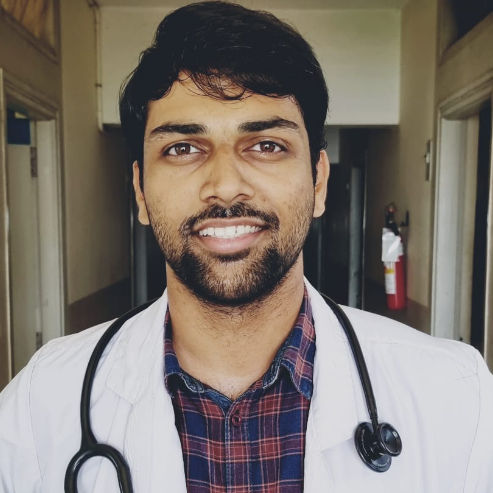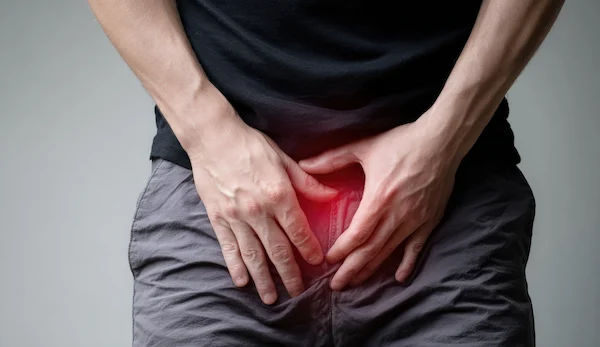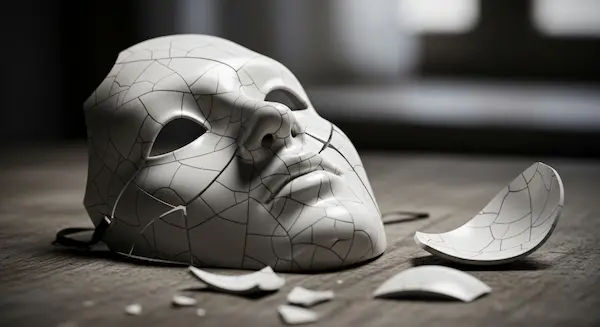Polydipsia: Understanding Excessive Thirst
Learn about polydipsia, the condition of excessive thirst. Understand its causes, related health conditions, symptoms, diagnosis and tips to manage polydipsia.

Written by Dr. M L Ezhilarasan
Reviewed by Dr. Shaik Abdul Kalam MD (Physician)
Last updated on 1st Sep, 2025

Do you often feel extremely thirsty, no matter how much water you drink? If you constantly crave fluids and still feel dehydrated, you might be experiencing polydipsia, a condition characterized by excessive thirst. While thirst is a normal response to dehydration, polydipsia can be a sign of an underlying health issue.
In this article, we’ll explore what polydipsia is, its causes, symptoms, and how to manage it effectively.
What is Polydipsia?
Polydipsia is a medical term for abnormally increased thirst, where a person feels the need to drink excessive amounts of water, often beyond what the body actually requires. While occasional thirst is normal (especially after exercise or in hot weather), persistent and extreme thirst could indicate an underlying problem.
Consult an Endocrinologist for the best advice
Common Causes of Polydipsia
Several conditions can lead to excessive thirst:
- Diabetes (Type 1 & Type 2) – High blood sugar levels cause the kidneys to remove excess glucose through urine, leading to dehydration and increased thirst.
- Diabetes Insipidus – A rare condition where the kidneys cannot retain water, causing frequent urination and extreme thirst.
- Dehydration – Due to excessive sweating, diarrhoea, vomiting, or insufficient fluid intake.
- Medications – Some drugs (like diuretics, antipsychotics, or steroids) can cause dry mouth and increased thirst.
- Psychogenic Polydipsia – A psychological condition where a person compulsively drinks excessive water, often seen in mental health disorders.
- Kidney Disease – Impaired kidney function can lead to fluid imbalances and increased thirst.
- Infections or Fever – High body temperature increases water loss, making you thirstier.
If you experience unexplained, persistent thirst, it’s important to consult a doctor to rule out serious conditions like diabetes.
Symptoms of Polydipsia
The main symptom is constant, unquenchable thirst, but other signs may include:
- Drinking more than 5-6 litres of water per day (normal intake is about 2-3 litres).
- Frequent urination (polyuria), especially at night.
- Dry mouth despite drinking water.
- Fatigue or dizziness due to dehydration.
- Blurred vision (if related to high blood sugar).
If you notice these symptoms, especially with unexplained weight loss or fatigue, seek medical advice.
How is Polydipsia Diagnosed?
A doctor may perform tests to determine the cause:
- Blood tests (to check blood sugar, kidney function, and electrolyte levels).
- Urine tests (to assess glucose or concentration).
- Water deprivation test (for diabetes insipidus).
- Psychological evaluation (if psychogenic polydipsia is suspected).
Early diagnosis helps in managing the underlying condition effectively.
Get Your Health Assessed
How to Manage Polydipsia?
Treatment depends on the cause:
1. If Due to Diabetes
- Monitor blood sugar levels regularly.
- Follow a balanced diet (low in refined sugars).
- Take prescribed medications or insulin as directed.
2. For Diabetes Insipidus
- Hormone therapy (desmopressin) may be prescribed.
- Reduce salt intake to prevent excessive thirst.
3. General Tips for Managing Thirst
- Stay hydrated but avoid over-drinking (3-4 litres/day is usually enough).
- Limit caffeine & alcohol, as they dehydrate the body.
- Eat water-rich foods (cucumbers, watermelon, oranges).
- Check medications; ask your doctor if any drugs cause excessive thirst.
- Monitor urine color (pale yellow is ideal; dark yellow means dehydration).
When to See a Doctor?
Consult a doctor:
- If thirst persists despite drinking enough water.
- If accompanied by frequent urination, fatigue, or weight loss.
- If you suspect diabetes or kidney issues.
Can Polydipsia Be Prevented?
While some causes (like diabetes insipidus) cannot be prevented, you can reduce risks by:
- Managing diabetes (if diagnosed).
- Avoiding excessive salt & sugary drinks.
- Staying hydrated in hot weather or after exercise.
- Regular health check-ups to detect issues early.
Final Thoughts
Polydipsia is more than just feeling thirsty; it can be a warning sign of an underlying health problem. If you or a loved one experiences uncontrollable thirst, don’t ignore it. Early diagnosis and treatment can prevent complications.
Consult an Endocrinologist for the best advice
Consult an Endocrinologist for the best advice

Dr. Shruthi B
Endocrinologist
20 Years • MBBS,MD ( GEN MED) DM (ENDOCRIONOLOGY)
Bengaluru
Apollo Clinic, JP nagar, Bengaluru

Dr. Sushith C
General Physician
2 Years • MBBS
Bengaluru
PRESTIGE SHANTHINIKETAN - SOCIETY CLINIC, Bengaluru

Dr. Chaithanya R
Internal Medicine Specialist Diabetologist
16 Years • MBBS, MD Internal Medicine, Fellowship in Diabetes(UK), CCEBDM(PHFI)
Bangalore
Apollo Clinic Bellandur, Bangalore
(75+ Patients)

Dr Venkata Naga Sai Tribhushan Rambhatla
General Physician
3 Years • MBBS
Bengaluru
PRESTIGE SHANTHINIKETAN - SOCIETY CLINIC, Bengaluru

Dr. Anand Ravi
General Physician
2 Years • MBBS
Bengaluru
PRESTIGE SHANTHINIKETAN - SOCIETY CLINIC, Bengaluru
Consult an Endocrinologist for the best advice

Dr. Shruthi B
Endocrinologist
20 Years • MBBS,MD ( GEN MED) DM (ENDOCRIONOLOGY)
Bengaluru
Apollo Clinic, JP nagar, Bengaluru

Dr. Sushith C
General Physician
2 Years • MBBS
Bengaluru
PRESTIGE SHANTHINIKETAN - SOCIETY CLINIC, Bengaluru

Dr. Chaithanya R
Internal Medicine Specialist Diabetologist
16 Years • MBBS, MD Internal Medicine, Fellowship in Diabetes(UK), CCEBDM(PHFI)
Bangalore
Apollo Clinic Bellandur, Bangalore
(75+ Patients)

Dr Venkata Naga Sai Tribhushan Rambhatla
General Physician
3 Years • MBBS
Bengaluru
PRESTIGE SHANTHINIKETAN - SOCIETY CLINIC, Bengaluru

Dr. Anand Ravi
General Physician
2 Years • MBBS
Bengaluru
PRESTIGE SHANTHINIKETAN - SOCIETY CLINIC, Bengaluru








